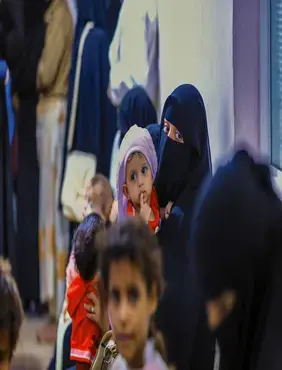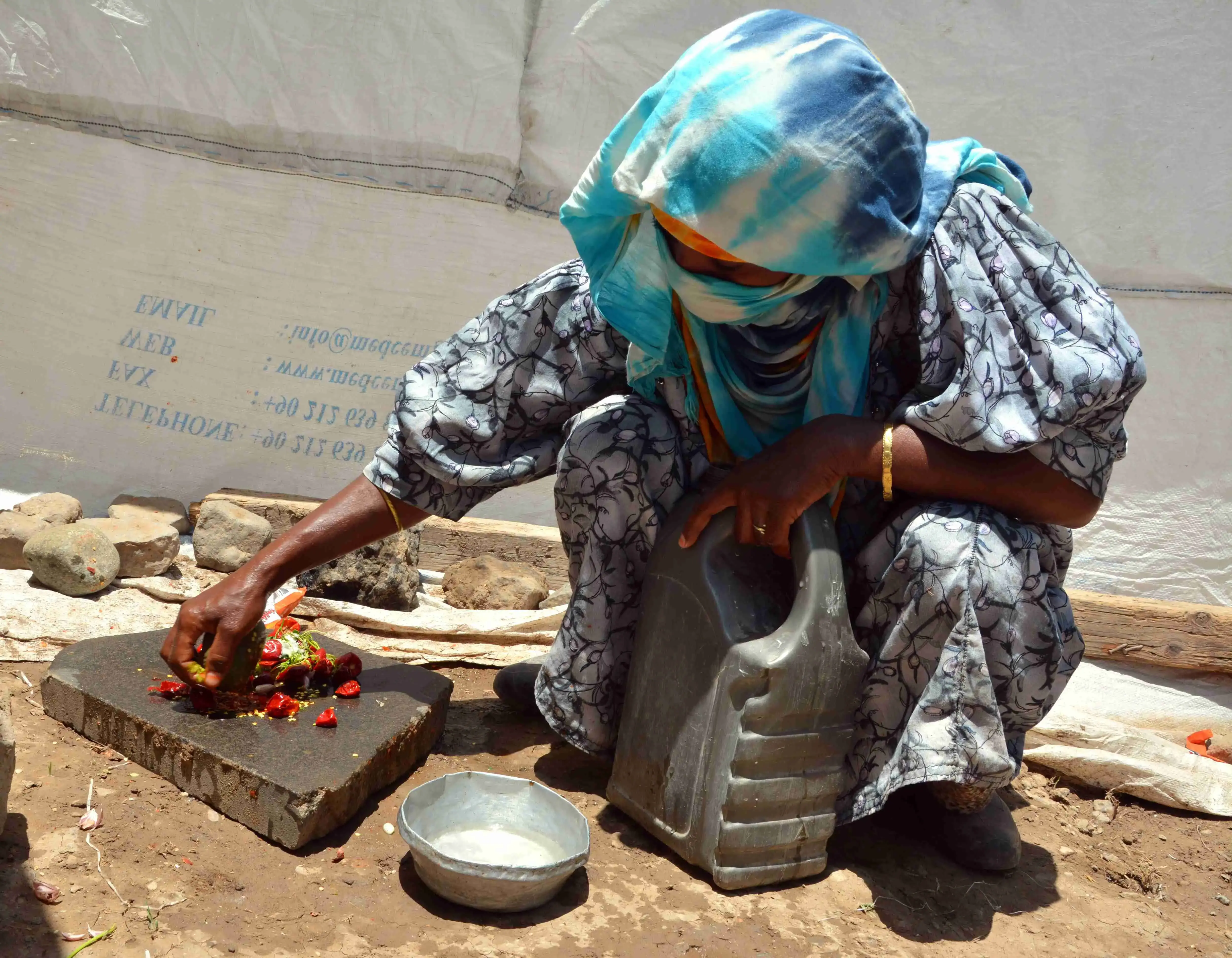As 2021 came to a close, Yemen remained one of the world’s worst humanitarian crises, with some 20.7 million people in need of some form of humanitarian assistance or protection. The country situation, which is primarily driven by conflict and an economic blockade, has been exacerbated by COVID-19, heavy rains and flooding, escalating hostilities, currency collapse, decreased government capacity and access challenges.
Yemen also remained the fourth largest displacement crisis in the world with an estimated 4 million internally displaced people. The conflict intensified in Marib, Al Jawf, Al Bayda, Shabwah, Taizz and Al Hudaydah Governorates, challenging a sustained humanitarian response and resulting in aggravated needs and further displacement. Some 153,000 people were displaced across the country in the course of 2021, with nearly 100,000 of them being displaced in or to Marib Governorate. UNFPA has been at the forefront of the humanitarian response in Marib. Through the UNFPA-led Rapid Response mechanism in partnership with WFP and UNICEF, emergency relief was provided to nearly 100,000 displaced individuals in Marib.
COVID-19 continued to place additional pressure on a health system functioning at 50 percent its capacity. By December 2021, some 10,000 cases of COVID-19 were recorded in the south, including nearly 2,000 associated deaths. These figures greatly underestimate community spread, given the lack of testing capacities across the country. They also completely exclude cases originating from the north. Only two per cent of the population has been vaccinated with vaccines made available for Yemen in 2021 falling far short of existing needs. UNFPA remained a frontline partner of the COVID-19 response in Yemen. Since January 2021, nearly 1 million people were reached with personal protection equipment with UNFPA support, while also helping to ensure the safe provision of reproductive health services.
The aid operation in Yemen remained funded at 58 percent by the end of December, leaving a gap of $1.6 billion. UNFPA’s $100 million humanitarian appeal for 2021 remained funded at 51 percent by end December, forcing emergency relief operations to be scaled back while needs continued to grow.
Despite the lack of funding, by the end of the year, UNFPA's response reached nearly 2.8 million individuals with life-saving reproductive health services, protection information and services and emergency relief, with support to 127 health facilities, 51 safe spaces, nine shelters and eight specialized mental health centres.




